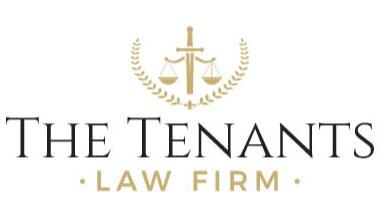Navigating Eviction: A Tenant’s Guide in Los Angeles
Introduction
Facing eviction can be a daunting and stressful experience. In a time of uncertainty, knowing your rights is especially crucial. Whether you’re a tenant, homeowner, or business owner, understanding your legal rights is essential.
Understanding Evictions in Los Angeles
Evictions in Los Angeles are governed by a complex set of laws designed to balance the rights of both tenants and landlords. Under the Los Angeles Rent Stabilization Ordinance (RSO), rent-controlled properties have specific guidelines regarding eviction, rent increases, and tenant protections. It’s essential for you to know your rights when the situation arises.
Reasons for Eviction
Landlords can evict tenants for valid reasons, such as non-payment of rent, violating the terms of the lease, or engaging in illegal activities on the property. However, it is illegal to evict a tenant as retaliation for reporting violations or requesting necessary repairs.
Key Things to Know if You’re Facing Eviction
Know Your Lease Agreement: One of the fundamental aspects of understanding your rights during an eviction is knowing your lease agreement thoroughly. The terms and conditions specified in your lease can significantly impact the process. Pay close attention to clauses related to termination, notice periods, and conditions under eviction.
Proper Notice Requirements: In most jurisdictions, landlords are required to provide tenants with proper notice before initiating an eviction. The notice period can vary based on local laws and the reason for eviction, and common types of notices include Pay or Quit Notices, Cure or Quit Notices, and Unconditional Quit Notices. Understanding the type of notice you receive and the time frame provided is crucial.
Protection Against Retaliation: It's also essential to know that landlords cannot evict tenants in retaliation for asserting their legal rights, reporting code violations, or joining a tenant's union. If you believe that the eviction is in retaliation, you may have grounds for legal defense.
Illegal Eviction Practices: Landlords must follow legal procedures when evicting tenants. Illegal eviction practices, such as changing locks, shutting off utilities, or removing doors or windows, are not permitted. If you face any of these situations, it's vital to document the incidents and seek legal help immediately.
Tenant’s Right to a Safe and Habitable Environment: Tenants have the right to live in a safe and habitable environment. If the property becomes uninhabitable due to the landlord's negligence, you may have legal grounds to challenge the eviction. Issues like lack of essential utilities, pest infestations, or structural problems could all constitute a breach of the warranty of habitability.
Seeking Legal Assistance: If you find yourself facing eviction, seek legal advice from a reputable law firm specializing in housing and tenant rights. Experienced attorneys can assess your case, ensure your rights are protected, and provide expert guidance throughout the whole process.
Conclusion
Eviction can be a stressful and tricky situation, but knowing your rights and potential actions to take can make a huge difference. If you find yourself dealing with issues in eviction it's essential to seek legal advice from experienced tenant law professionals. Tenants Law Firm is here to help. If you are in need of legal assistance, contact us by calling (310) 432 - 3200 or by using this contact form.
